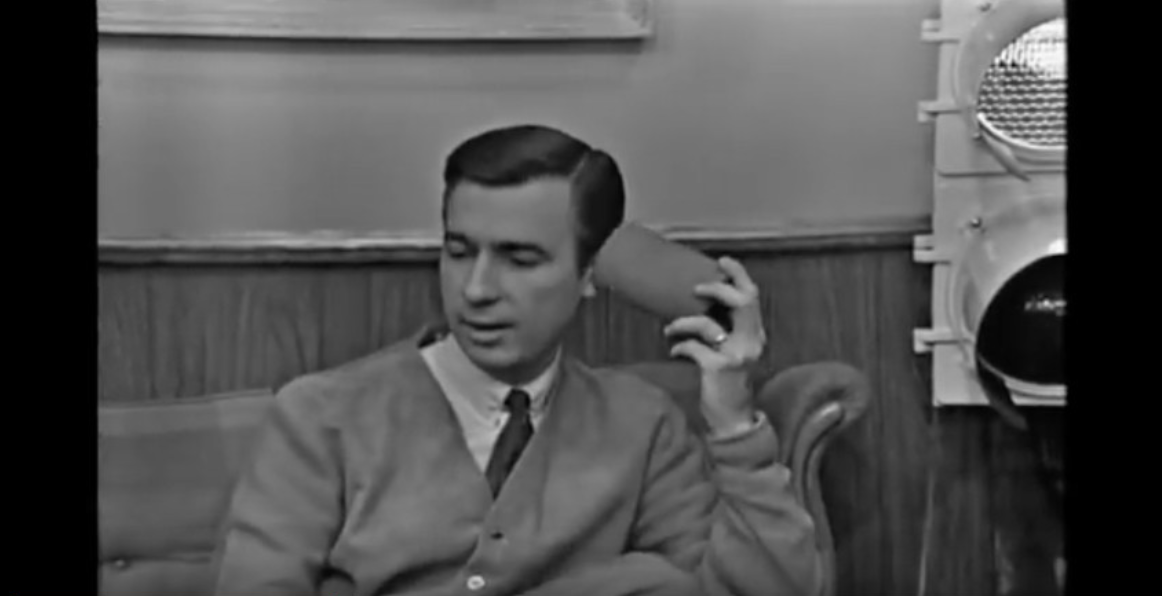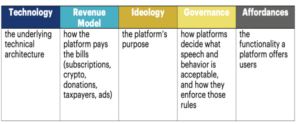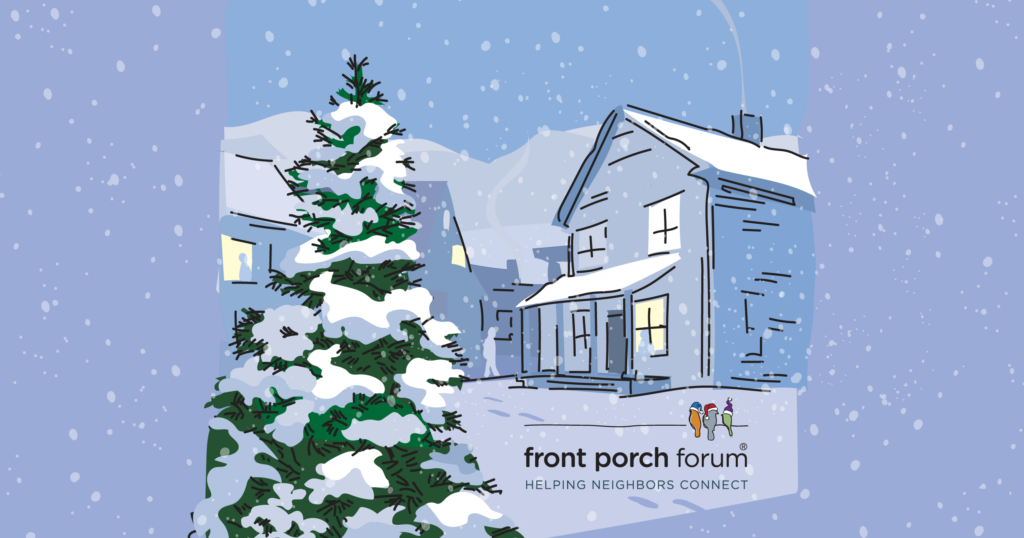Category Archives: social capital
Solving Social Media’s ‘Local Paradox’
A new article in a Stanford University journal underscores various failures of Big Tech social media, and highlights Vermont’s own Front Porch Forum as a better way.
In the bowels of social media giants, like NextDoor and Facebook, live online spaces for local social networks to take hold (e.g., a neighborhood based Facebook group).
One might think a healthy form of social connection would come from these local online networks because they’re grounded in real-world relationships and physical space — you could literally bump into that posting’s author on your way to school drop off — but in practice, as this article points out, local social media can be even more toxic than global platforms. It’s dubbed the ‘local paradox‘.
The solution to this local paradox, they say, is to build networks that are values-driven, closely moderated, trusted, and local. Further, they share Front Porch Forum as a leading example.
One Vermonter’s Response to Inflation
A recent Front Porch Forum posting in the Northeast Kingdom…
My favorite shopping place is FPF. As we are all struggling to get by, we think we can’t afford to buy what we need. But then the generosity of an FPF neighbor comes through. They have helped me several times! Thank you Neighbors 🤗
• Randall in East Burke
“Local Logic: It’s Not Always a Beautiful Day in the Neighborhood”
 Technology and the way people use it has the power to unite people or pull them apart. Ethan Zuckerman and Chand Rajendra-Nicolucci of Knight First Amendment Institute at Columbia University took a closer look at platforms that bring communities together on a local level, only to find that some designs work better than others.
Technology and the way people use it has the power to unite people or pull them apart. Ethan Zuckerman and Chand Rajendra-Nicolucci of Knight First Amendment Institute at Columbia University took a closer look at platforms that bring communities together on a local level, only to find that some designs work better than others.
Platforms that operate more like social media, where individuals can post whatever they want instantaneously, can lead to heated, attacking commentary, false accusations, or misinformation. This kind of content may cause civil discourse to devolve and it may disrupt the establishment of ties within a community.
On the other hand, Front Porch Forum is an example of a local platform that has systems in place to help keep conversations civil and community-minded, fulfilling its mission of helping neighbors build community. From Rajendra-Nicolucci and Zuckerman’s piece:
“That organic growth was key to maintaining one of the key differences between FPF and Nextdoor: proactive moderation. FPF uses a team of moderators that review each post to make sure it adheres to the site’s code of conduct (which bars personal attacks and behavior “counter to its community-building mission”) before it’s posted. That helps to keep the discussion friendly and constructive… We believe a platform that takes governance seriously, is designed for a specific purpose, and has ties to the communities it serves can be successful anywhere.”
The authors also share the criteria by which they evaluate various platforms. These platforms operate on a local level broken into neighborhoods, towns, or city blocks.

“Getting local social media right is important. Local platforms present an opportunity to strengthen social capital and civic life. At their best, they can keep residents informed about local issues, encourage civic organizing and action, and facilitate new connections and greater understanding.”
Read the full article on Knight First Amendment Institute at Columbia University’s blog here.
“What Vermont and Its History Might Teach the Nation About Handling the Coronavirus”
 Vermont has the lowest number of cases of COVID-19 in the United States and it begs the question “why?” In Bill McKibben’s July 28 article in The New Yorker, he explains the state of Vermont’s unique history and social structures that likely pay a big part in preventing the virus’s spread throughout the Green Mountains.
Vermont has the lowest number of cases of COVID-19 in the United States and it begs the question “why?” In Bill McKibben’s July 28 article in The New Yorker, he explains the state of Vermont’s unique history and social structures that likely pay a big part in preventing the virus’s spread throughout the Green Mountains.
In addition to Phil Scott acting quickly when the first few cases appeared, McKibben credits much of the spread slow-down to neighborliness and social trust:
“Vermonters entered the pandemic with remarkably high levels of social trust. Only thirty-eight per cent of Americans say they mostly or completely trust their neighbors, but a 2018 Vermont survey found that seventy-eight per cent of residents think that “people in my neighborhood trust each other to be good neighbors”; sixty-nine per cent of Vermonters said that they knew most of their neighbors, compared with twenty-six per cent of Americans in general…
…All that is a reminder of how social trust has been squandered across so much of our nation as we’ve divided into red and blue teams, concentrated on individual advancement, and had our worst instincts yanked at by social media. In this case, Vermont is extremely lucky to be living a little in the past. The governor didn’t immediately mandate mask-wearing because almost everyone mandated it for themselves…”
Read Bill McKibben’s full article in the New Yorker here.
About Blog
Ghost of Midnight is an online journal about fostering community within neighborhoods, with a special focus on Front Porch Forum (FPF). My wife, Valerie, and I founded FPF in 2006... read more
Post Categories
- Uncategorized
- PDF2009
- Calendar
- Northeast Kingdom
- podcast
- Peer Rental
- Localization
- Big Tech
- Events
- PDF2007
- Web Traffic
- Google AdSense
- Pay It Forward
- Elections
- berkmansunlight
- Maps
- Video
- Upstate New York
- Coupons
- Wildlife
- Mobile
- Viral Marketing
- Raffle
- Crisis Response
- Donations
- Lost & Found
- Real Estate
- College Students
- Gratitude
- Social Responsibility
- Orton Family Foundation
- Start ups
- Make It Your Own Awards
- Online Civility
- Clay Shirky
- Newspapers
- Humor
- How To Use FPF
- Online Classified Ads
- Peer Reviews
- Best of FPF
- Politics
- Community Management
- Economic Development
- Local Reviews
- Case Foundation
- Borrow and Lend
- Neighborhood Watch
- Good Government
- Small Business Advertising
- Citizen Journalism
- e-Vermont
- Democracy
- Local Search
- Knight Foundation
- Burlington
- MacArthur Fellows
- Civic Engagement
- Social Media
- social capital
- Social Networking
- Vermont
- Neighborhood
- Community Building
- Local Online
- Front Porch Forum







 I love to bake sourdough bread. Do you know of someone who might really enjoy a surprise gluten-full delivery? (Yes, it can be you/your family, haha). Reply to me directly and I’ll drop some off on their/your stoop in a couple days, at no cost. Then, to continue the chain, you post about some thing or some (socially distant) task you can offer, and it goes and goes. If you’d like to play, please read the guidelines below.
I love to bake sourdough bread. Do you know of someone who might really enjoy a surprise gluten-full delivery? (Yes, it can be you/your family, haha). Reply to me directly and I’ll drop some off on their/your stoop in a couple days, at no cost. Then, to continue the chain, you post about some thing or some (socially distant) task you can offer, and it goes and goes. If you’d like to play, please read the guidelines below.

